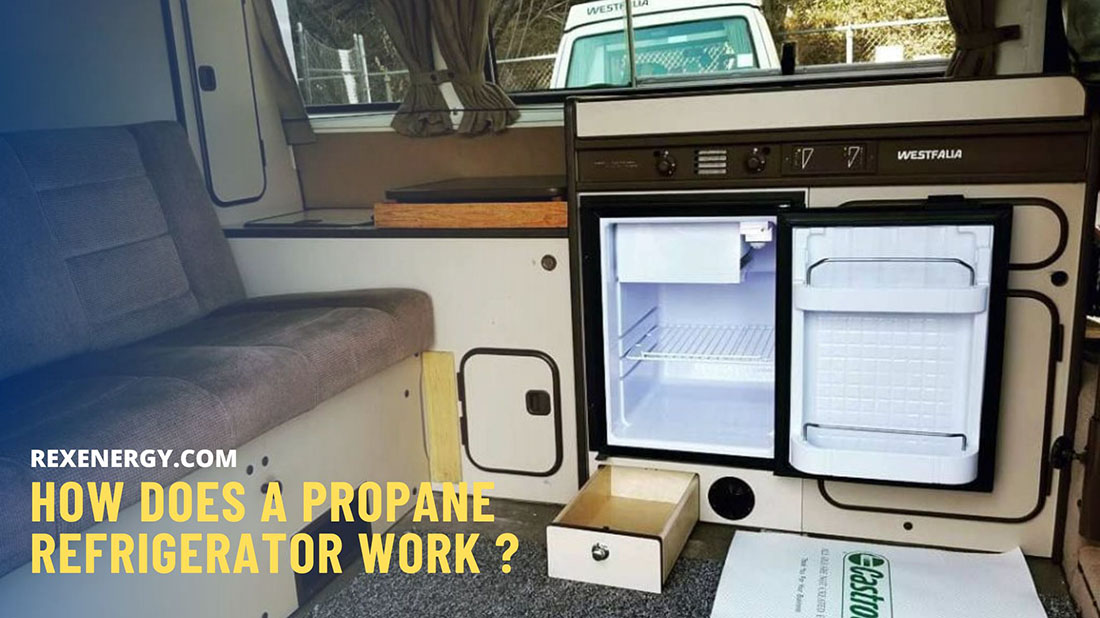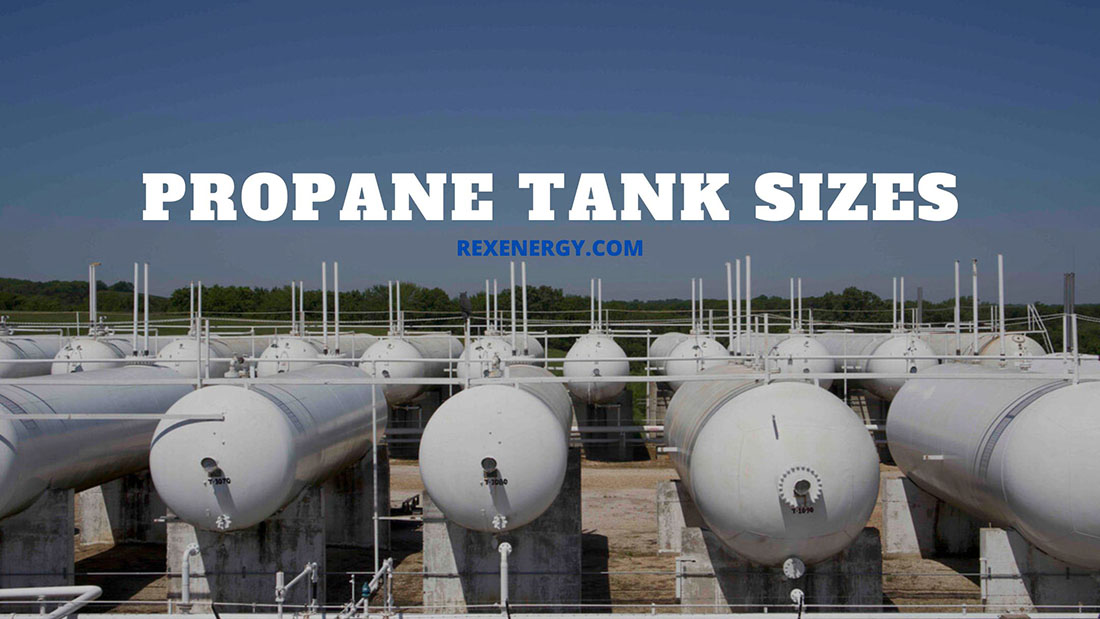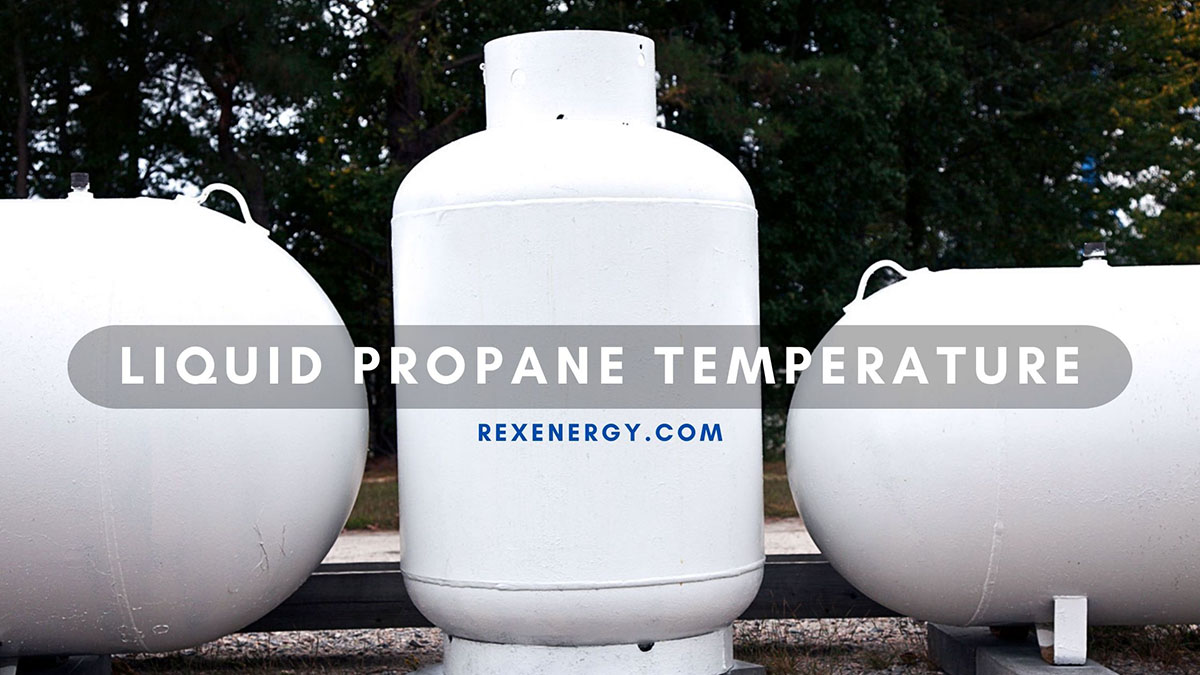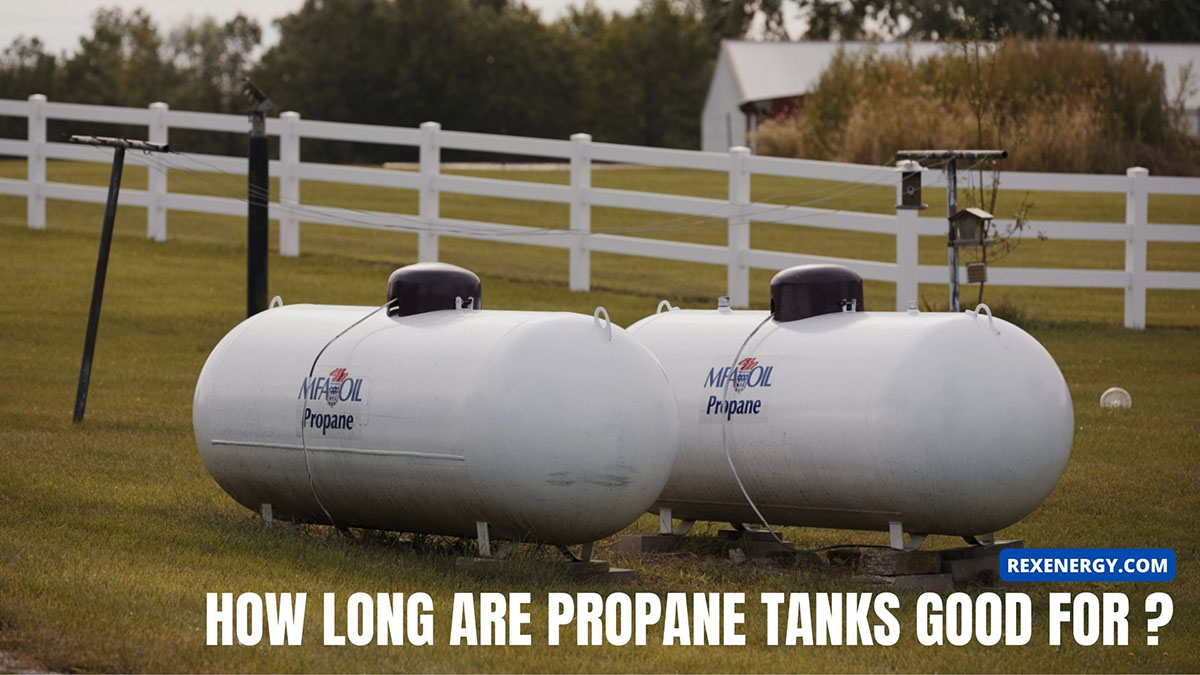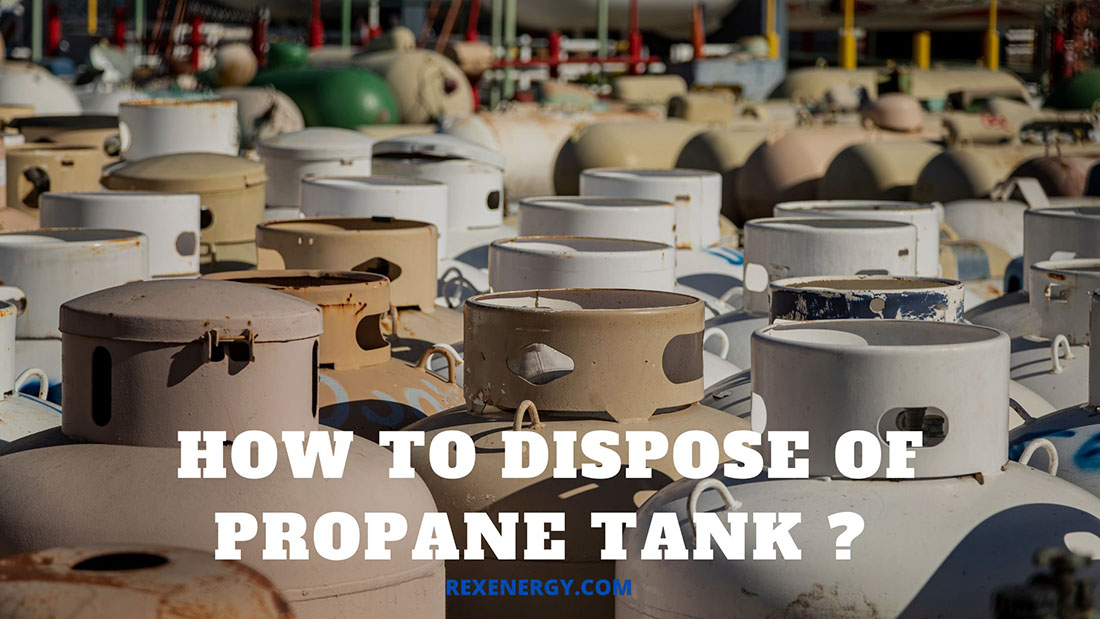Although conventional refrigerators still have their place in the market, propane fridges have become more common. You can find them in numerous boats, RVs, and campers; some households even consider them a backup source in cases of unexpected power outages.
So, how do propane refrigerators work to keep food and beverages cold? Scroll through our guides to have a closer look!
How Does A Propane Refrigerator Work?
First, water and ammonia are heated by a propane flame to vaporize. The ammonia then returns to its liquid form in the condenser before entering the evaporator, where it reacts with hydrogen gas to absorb heat from the fridge compartments. Ammonia will turn into a gas again to restart the cooling cycle.
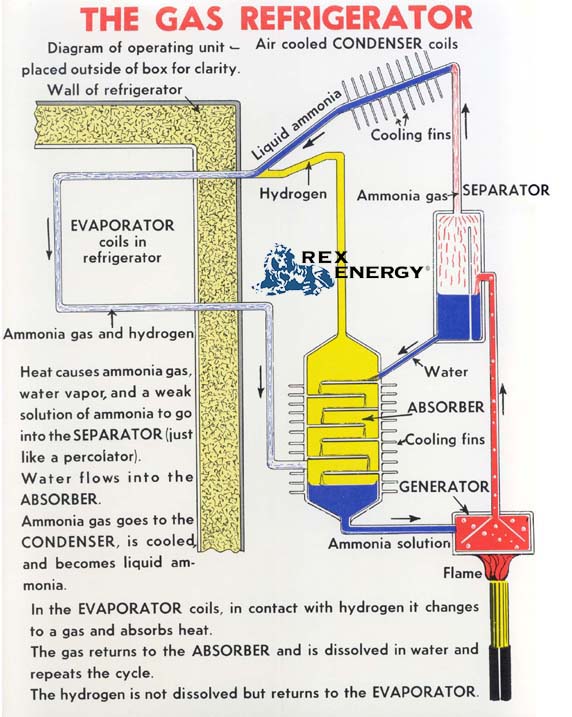
As one can see, the entire cooling process is quite different from how a gas refrigerator works. Below are more details about all the stages involved in keeping items cool:
Stage 1. Propane Heating
A propane flame heats a mixture of hydrogen vapor, distilled water, and anhydrous ammonia. This heat causes both the water and ammonia to vaporize.
Stage 2. Percolation
The vaporized water and ammonia now go through a perk tube resembling a percolator used for coffee. Both turn into steam – ammonia first (since it is lighter), then water.
Stage 3. Water-Ammonia Separation
While water drops into the absorber tube, the ammonia steam will move to the rectifier and the condenser tube, turning into liquid.
Stage 4. Heat Absorption & Evaporation
Now, the liquid ammonia flows into the evaporator to meet hydrogen gas. Their chemical reaction leads to ammonia evaporation, leaving an effective cooling effect that absorbs all the heat in the refrigerator compartments.
Stage 5. Continuous Cycles
The ammonia returns to mix with weak water in the absorber propane tank, repeating the cycle to generate a cooling effect and keep your refrigerator cold.
What Are The Benefits of A Propane Refrigerator?
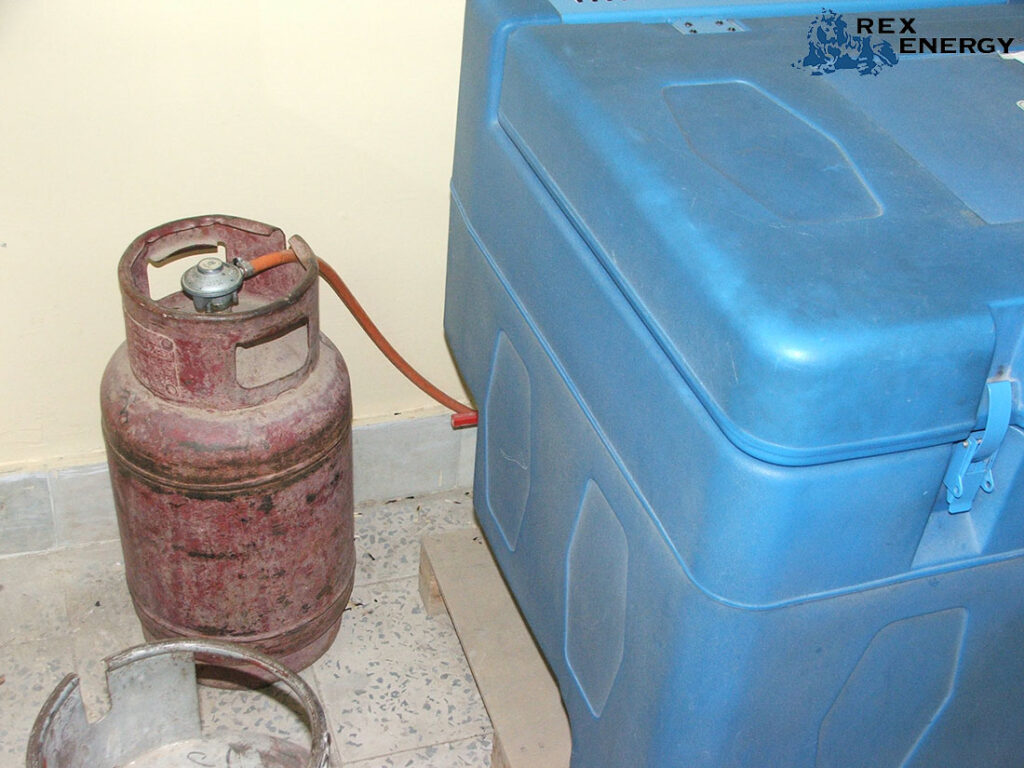
Propane refrigerators offer numerous undeniable benefits:
- Cost-Effective: Propane refrigerators are much cheaper to purchase than electric ones. The propane itself also costs less than electricity. That’s why running an electric refrigerator might cost you $100 monthly, while a propane fridge requires only $10 or even less.
- Environmental Friendliness: Unlike other fuel options, propane does not produce many toxic fumes or carbon monoxide that might harm your health or the environment.
- Off-Grid Usage: Propane refrigerators (or any propane appliance in general) do not need electricity to run for extended periods. As such, they are excellent for off-grid usage or as a backup power source during any outage.
- Durability: Propane refrigerators do not have any moving parts, so you rarely have to worry about them breaking down or wearing out. Not to mention, their warranty policies are usually quite competitive (7 years or more).
- Space-Saving: Larger fridges like electric models need coils and compressors to cool down, but that is not the case for propane fridges – which explains why they take much less space. Most propane fridges only include basic components like an icebox, gas regulator, gas line, and the main case.
Does A Propane Refrigerator Have Any Disadvantage?
Besides the advantages, there are some drawbacks you definitely have to keep in mind:
- High Fire Risks: As mentioned above, these fridges use a propane flame to heat the ammonia and water mixture at the start of the refrigeration process. Hence, improper installation, bird nests, insects, etc., can easily cause fires.
- Level Requirements: You need to keep the refrigerator level for smooth operations. Otherwise, the ammonia cannot flow smoothly and reduce the fridge’s cooling efficiency, even damaging the coils in the long run.
- Chemical Leak: All the chemicals in the fridge’s cooling unit (hydrogen, ammonia, propane) are dangerous. Imagine the disasters that will occur to you and your family if they leak into the wrong places!
- Slow Cooling: These fridges do not have fans to circulate air, so they take much longer to reach the right internal temperature than compressor fridges.
Conclusion
Our informative article has explained everything about a propane fridge and how it works. Refrigerators like these are terrific for camping trips and off-grid usage, but there are still several glaring downsides compared to standard gas fridges. Weigh the pros and cons to figure out how to use this reliable cooling solution in your favor.

